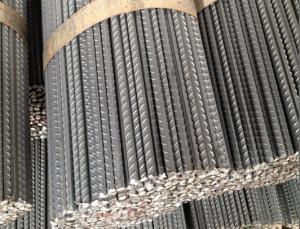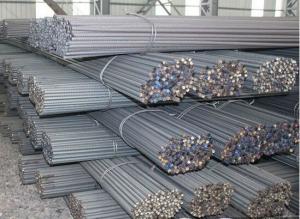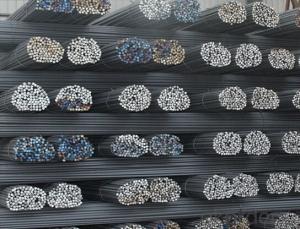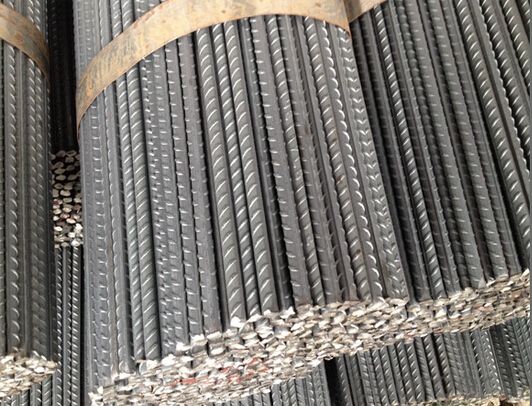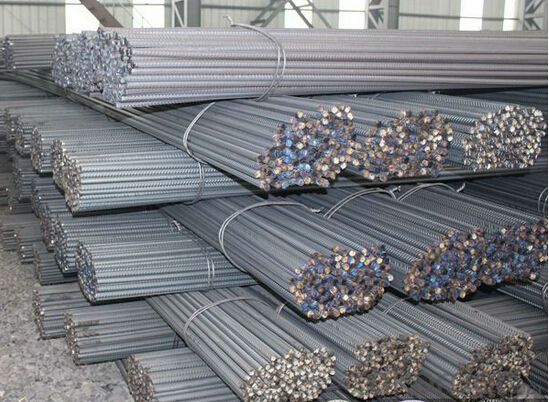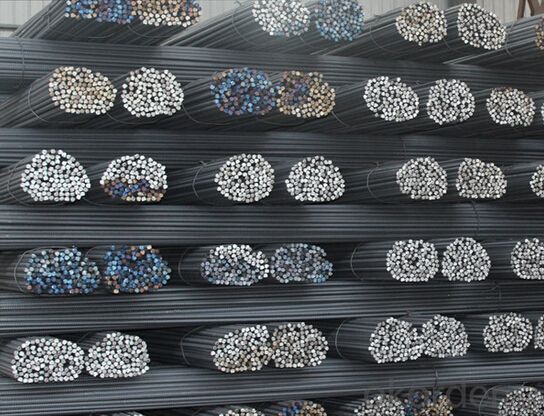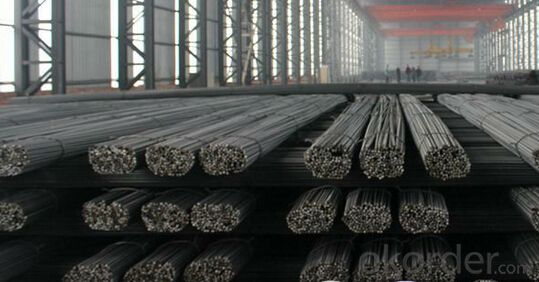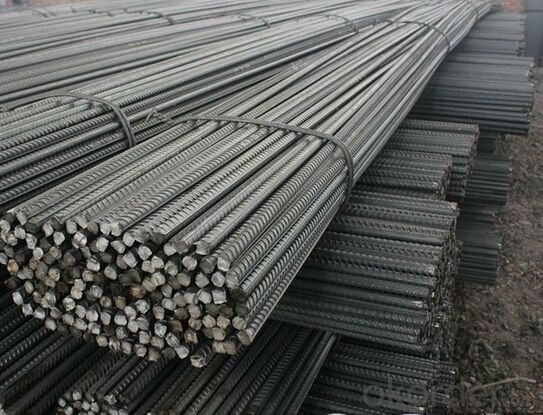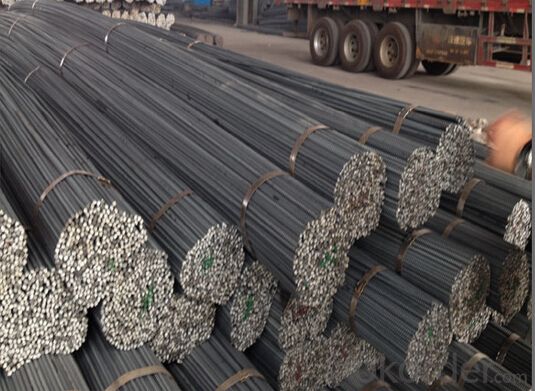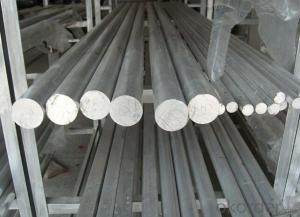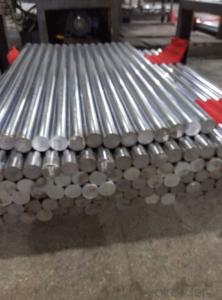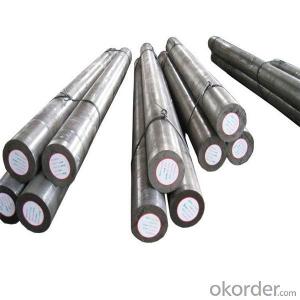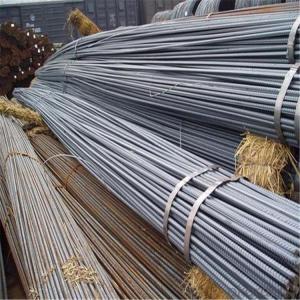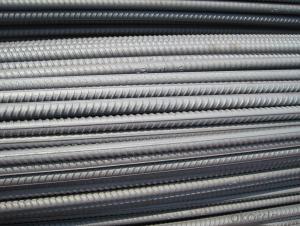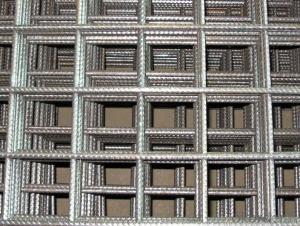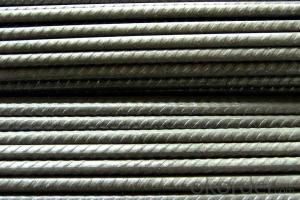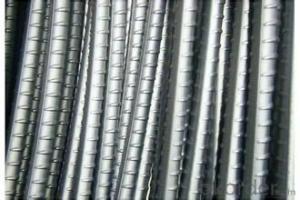Steel Deformed Bar SD295A_295B_SD345_SD390_SD490
- Loading Port:
- Tianjin
- Payment Terms:
- TT OR LC
- Min Order Qty:
- 50 m.t.
- Supply Capability:
- 10000 m.t./month
OKorder Service Pledge
OKorder Financial Service
You Might Also Like
Specification
Steel Deformed Bar SD295A_295B_SD345_SD390_SD490
Details of Steel Deformed Bar SD295A_295B_SD345_SD390_SD490
Name | Deformed Bar |
Shape | Round Bar |
Standard | 1.GB1499.2-2007, HRB335, HRB400E 2. ASTM A615 Gr.40, Gr.60 3.BS4449/1997 |
Diameter | 6mm-50mm |
Length | 6m, 8m, 9m,12m as standard or as request |
Test | SGS/UT 100% Elements Testing |
Certificate: | ISO/Mill Certificate |
Service: | 24 hours online service / |
more than 20 years trading and manufacture | |
Quality Assurance: | the third party inspection, such as SGS, BV, TUV…etc. is acceptable |
Packaging Details: | Seaworthy Packaging or as per customer's packing instruction |
Specification of Steel Deformed Bar SD295A_295B_SD345_SD390_SD490
Standard | Grade | Yield Strength Mpa | Tensile Strength | Elongation% |
BS4449:1997 | 250 | 250 | 295 | 22 |
460A | 460 | 485 | 12 | |
460B | 460 | 500 | 15 | |
GB1499.2-2007 | HRB335/335E | 335 | 455 | 17 |
HRB400/400E | 400 | 540 | 17 | |
HRB500/500E | 500 | 630 | 16 | |
ASTM A615 & A615M-04a | GRADE40 | 280 | 420 | 12 |
GRADE60 | 420 | 620 | 9 | |
GRADE75 | 520 | 690 | 7 | |
JIS G3112-2004 | SD295A | ≥ 295 | 440-600 | 17 |
SD295B | 295-390 | ≥ 440 | 17 | |
SD345 | 345-440 | ≥490 | 19 | |
SD390 | 390-510 | 560 | 17 | |
SD490 | 490-625 | ≥ 620 | 13 |
Size | WEIGHT | WEIGHT | QUANTITY | ||
LENGTH 6M | LENGTH 12M | LENGTH 6M | LENGTH 12M | ||
6 | 0.222 | 1.332 | 2.664 | 751 | 375 |
8 | 0.395 | 2.37 | 4.74 | 422 | 211 |
10 | 0.617 | 3.702 | 7.404 | 270 | 135 |
12 | 0.888 | 5.328 | 10.656 | 188 | 94 |
14 | 1.21 | 7.26 | 14.52 | 138 | 69 |
16 | 1.58 | 9.48 | 18.96 | 106 | 53 |
18 | 2 | 12 | 24 | 83 | 42 |
20 | 2.47 | 14.82 | 29.64 | 67 | 34 |
22 | 2.98 | 17.88 | 35.76 | 56 | 28 |
25 | 3.85 | 23.1 | 46.2 | 43 | 22 |
28 | 4.83 | 28.98 | 57.96 | 35 | 17 |
32 | 6.31 | 37.86 | 75.72 | 26 | 13 |
36 | 7.99 | 47.94 | 95.88 | 21 | 10 |
40 | 9.87 | 59.22 | 118.44 | 17 | 8 |
50 | 15.42 | 92.52 | 185.04 | 11 | 5 |
CNBM Introduction of Steel Deformed Bar SD295A_295B_SD345_SD390_SD490 Supplier
CNBM International Corporation is the most import and export platform of CNBM group(China National Building Material Group Corporation) ,which is a state-owned enterprise, ranked in 270th of Fortune Global 500 in 2015.
With its advantages, CNBM International are mainly concentrate on Cement, Glass, Iron and Steel, Ceramics industries and devotes herself for supplying high quality series of refractories as well as technical consultancies and logistics solution.
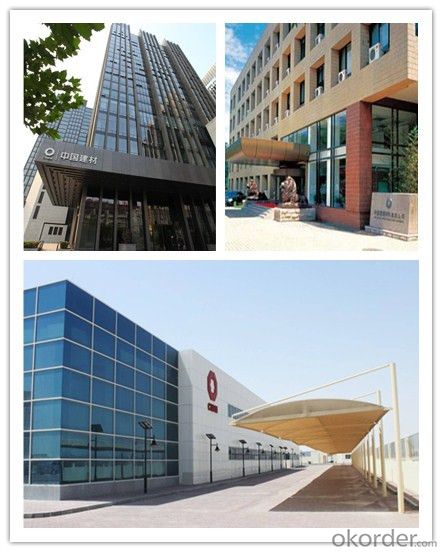
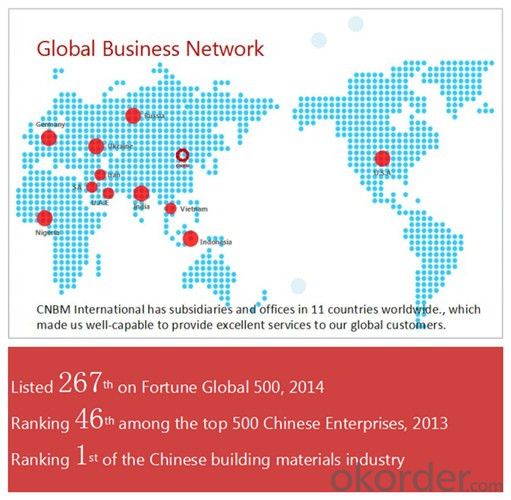
Packaging & Delivery of Steel Deformed Bar SD295A_295B_SD345_SD390_SD490
Packaging Detail | Sea worthy packing /as per customer's packing instruction |
Delivery Detail | 15 ~ 40 days after receiving the deposit |
Products Show
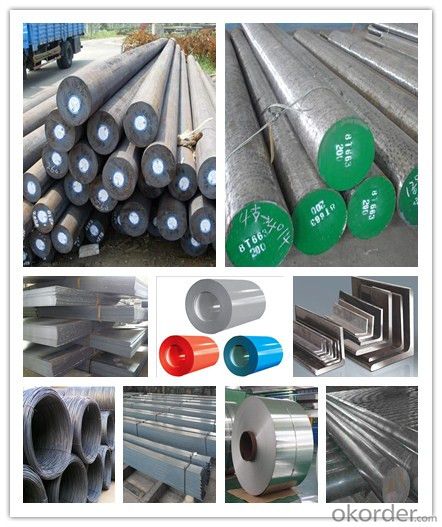
FAQ:
Are you a trading company or manufacturer? | Manufacturer |
What’s the MOQ? | 3 metric ton |
What’s your delivery time? | 15-35 days after downpayment received |
Do you Accept OEM service? | Yes |
what’s your delivery terms? | FOB/CFR/CIF |
What's the Payment Terms? | 30% as deposit,70% before shipment by T/T |
Western Union acceptable for small amount. | |
L/C acceptable for large amount. | |
Scrow ,Paybal,Alipay are also ok | |
Why choose us? | Chose happens because of quality, then price, We can give you both. Additionally, we can also offer professional products inquiry, products knowledge train (for agents), smooth goods delivery, excellent customer solution proposals. |
What's your available port of Shipment? | Main Port, China |
What’s your featured services? | Our service formula: good quality+ good price+ good service=customer's trust
|
Where are your Market? | Covering more than 160 countries in the world |
- Q: What is the significance of carbon content in special steel?
- The carbon content in special steel is significant as it determines the steel's strength, hardness, and overall performance. Higher carbon content usually results in increased hardness and strength, making it suitable for applications that require high durability and resistance to wear. On the other hand, lower carbon content enhances the steel's ductility and ease of machining. The right balance of carbon content in special steel allows manufacturers to tailor the material to specific needs, ensuring optimal performance in various industries such as automotive, aerospace, and construction.
- Q: What are the specific requirements for special steel used in the mining industry?
- Special steel used in the mining industry has specific requirements to ensure its durability, strength, and resistance to harsh conditions. Some of the key requirements for special steel used in the mining industry include: 1. High strength: Special steel used in the mining industry must have high tensile strength to withstand heavy loads and resist deformation under extreme conditions. This enables the steel to endure the pressure, impact, and stress that it may encounter during mining operations. 2. Wear resistance: Mining environments involve abrasive materials, such as rocks and ores, which can cause significant wear on equipment. Special steel used in the mining industry needs to have excellent wear resistance to prevent premature failure and increase the lifespan of mining equipment. 3. Corrosion resistance: Mining operations often take place in highly corrosive environments, such as underground mines or near water bodies. Special steel used in the mining industry should possess high corrosion resistance to withstand exposure to chemicals, moisture, and other corrosive agents. This helps prevent rusting, pitting, and other forms of corrosion that can weaken the steel. 4. Toughness: Mining equipment is subjected to heavy impacts and vibrations, which can lead to fractures if the steel is not tough enough. Special steel used in the mining industry should exhibit excellent toughness, allowing it to absorb energy from impacts and vibrations without fracturing. This ensures the safety and reliability of mining equipment. 5. Heat resistance: Mining operations involve high-temperature environments, such as smelting and refining processes. Special steel used in the mining industry must have good heat resistance to withstand the elevated temperatures without losing its strength or undergoing deformation. 6. Machinability: Special steel used in the mining industry should also have good machinability, allowing it to be easily formed into complex shapes or structures. This facilitates the manufacturing process of mining equipment and components. Overall, the specific requirements for special steel used in the mining industry revolve around strength, wear resistance, corrosion resistance, toughness, heat resistance, and machinability. Meeting these requirements is crucial for ensuring the reliability, durability, and safety of mining equipment in the demanding mining environments.
- Q: How is special steel different from regular steel?
- Special steel is different from regular steel in that it is specifically formulated to possess certain enhanced properties and characteristics, such as increased strength, hardness, corrosion resistance, or heat resistance. These unique properties make special steel suitable for various specialized applications where regular steel may not meet the required specifications.
- Q: How does special steel perform in extreme heat conditions?
- Special steel is specifically engineered to excel in situations with intense heat. It showcases remarkable endurance against thermal fatigue, oxidation, and creep, rendering it ideal for applications that involve exposure to extreme heat. The distinctive composition and processing techniques employed in the production of special steel enable it to maintain its mechanical properties and structural integrity even when subjected to elevated temperatures. One of the primary attributes of special steel is its elevated melting point, which prevents it from easily melting or deforming under extreme heat. This characteristic holds significant importance in industries like aerospace, power generation, and automotive, where components must endure high temperatures while retaining their shape and functionality. Moreover, special steel possesses exceptional heat resistance, allowing it to effectively withstand and dissipate heat without compromising its strength or becoming brittle. This quality ensures that the steel remains durable and dependable even when exposed to prolonged periods of high temperatures. Additionally, special steel demonstrates exceptional resistance to oxidation, forming a protective layer on its surface that shields it from corrosion or degradation when exposed to oxygen at high temperatures. This resistance to oxidation enables special steel to sustain its performance and structural integrity over extended periods, making it highly suitable for applications in extreme heat conditions. In conclusion, special steel excels in extreme heat conditions due to its elevated melting point, heat resistance, and oxidation resistance. Its ability to withstand thermal fatigue, oxidation, and creep establishes it as a reliable and durable option for applications requiring superior performance in high-temperature environments.
- Q: How is high-temperature tool steel used in the production of hot work tools?
- High-temperature tool steel is used in the production of hot work tools due to its exceptional heat resistance and strength properties. It can withstand the high temperatures generated during hot work processes such as forging, extrusion, and die casting, without losing its hardness or experiencing deformation. This steel is used to manufacture tooling components like dies, punches, and inserts, ensuring their longevity and performance in extreme heat conditions.
- Q: How is high-strength stainless steel used in the production of structural components?
- High-strength stainless steel is commonly used in the production of structural components due to its exceptional durability, corrosion resistance, and ability to withstand high stress and heavy loads. It is often employed in construction, automotive, aerospace, and marine industries to create beams, columns, frames, and other critical parts that require strength and longevity. Its superior properties enable the creation of lighter, more efficient structures without compromising on safety or structural integrity.
- Q: What are the main factors affecting the creep resistance of special steel?
- The main factors affecting the creep resistance of special steel are composition, microstructure, and processing conditions. Composition plays a critical role in determining the creep resistance of special steel. The presence of alloying elements such as chromium, molybdenum, and vanadium can enhance the creep resistance by forming stable precipitates or carbides that impede dislocation movement. These alloying elements also contribute to the formation of a protective oxide layer, which can further improve the resistance to creep. Microstructure is another important factor affecting creep resistance. Fine-grained structures, achieved through proper heat treatment or alloying, can hinder dislocation movement and enhance the strength of the material, thereby improving creep resistance. Additionally, the presence of grain boundaries can act as barriers to dislocation motion, reducing the creep rate. Processing conditions, including heat treatment and deformation processes, can significantly influence the creep resistance of special steel. The choice of heat treatment parameters, such as temperature and cooling rate, can affect the precipitation of strengthening phases and the formation of a desirable microstructure. Proper deformation processing, such as hot working or cold working, can refine the grain structure and enhance the creep resistance. Other factors that can affect the creep resistance of special steel include temperature, stress, and time. Higher temperatures can accelerate creep deformation, while higher applied stresses can increase the creep rate. The duration of exposure to elevated temperatures and stresses also plays a role, as prolonged exposure can lead to creep failure. In conclusion, the creep resistance of special steel is influenced by various factors, including composition, microstructure, processing conditions, temperature, stress, and time. By carefully considering and optimizing these factors, the creep resistance of special steel can be enhanced, making it suitable for high-temperature and long-term applications.
- Q: Can special steel be used for automotive engine components?
- Yes, special steel can be used for automotive engine components. Special steels such as high-strength, heat-resistant, and corrosion-resistant alloys are often employed in manufacturing engine components to ensure durability, performance, and efficiency under demanding conditions.
- Q: What are the different forms of special steel?
- There are several different forms of special steel, including stainless steel, tool steel, high-speed steel, and alloy steel.
- Q: What are the main characteristics of tool steel?
- Tool steel is a type of steel that is specifically designed for the production of tools, such as drills, dies, and cutting instruments. It possesses several key characteristics that make it suitable for these applications. Firstly, tool steel is known for its exceptional hardness. It has a high carbon content, typically ranging from 0.5% to 1.5%, which contributes to its hardness. This hardness allows tool steel to resist wear and abrasion, making it ideal for cutting and shaping materials. Another important characteristic of tool steel is its high toughness. Tool steel is able to withstand high impact and shock loads without fracturing or breaking. This toughness is crucial in tooling applications where tools are subjected to heavy loads and forces. Tool steel also exhibits excellent heat resistance. It has a high melting point, allowing it to maintain its strength and hardness even at elevated temperatures. This heat resistance is crucial in applications where tools are exposed to high temperatures during cutting or shaping processes. In addition to these characteristics, tool steel possesses good dimensional stability and machinability. It has low distortion and shrinkage during heat treatment, ensuring that the tool maintains its shape and size. Tool steel is also easily machinable, allowing for the production of intricate shapes and designs. Overall, the main characteristics of tool steel include high hardness, toughness, heat resistance, dimensional stability, and machinability. These properties make tool steel an ideal material for the production of tools that require high strength, durability, and performance.
Send your message to us
Steel Deformed Bar SD295A_295B_SD345_SD390_SD490
- Loading Port:
- Tianjin
- Payment Terms:
- TT OR LC
- Min Order Qty:
- 50 m.t.
- Supply Capability:
- 10000 m.t./month
OKorder Service Pledge
OKorder Financial Service
Similar products
Hot products
Hot Searches
Related keywords
